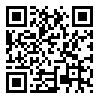Volume 22, Issue 1 (JIAEEE Vol.22 No.1 2024)
Journal of Iranian Association of Electrical and Electronics Engineers 2024, 22(1): 0-0 |
Back to browse issues page
Download citation:
BibTeX | RIS | EndNote | Medlars | ProCite | Reference Manager | RefWorks
Send citation to:



BibTeX | RIS | EndNote | Medlars | ProCite | Reference Manager | RefWorks
Send citation to:
Rashidi B. Design and implementation of an effective and optimal circuit for induction sealing. Journal of Iranian Association of Electrical and Electronics Engineers 2024; 22 (1)
URL: http://jiaeee.com/article-1-1646-en.html
URL: http://jiaeee.com/article-1-1646-en.html
Ayatollah Boroujerdi University
Abstract: (457 Views)
In the food, health, chemical and pharmaceutical industries, the induction sealing method is a good method for sealing container lids and is very effective in the shelf life of products. Keeping products fresh and preventing contamination from entering the product during the handling and selling stages is one of the advantages of sealing products. The aim of the current research is to design and implement the hardware of an effective and optimal induction heating circuit for induction sealing. This circuit has a low implementation cost, so the proposed system with a simple and efficient structure can cover the market needs of this field of technology. Here, the focus is on the implementation process and practical tips in the field of implementing this circuit. The proposed inductive sealing circuit works based on zero voltage switching technology to start the transistors of the circuit. In this structure, by using inductors and capacitors with appropriate tolerable current and voltage, it can provide the power and frequency of the output signal applied to the induction coil for various applications. The use of transistors with suitable flow capability makes the circuit suitable for tasks that require the application of stronger magnetic fields. In addition, the induction coil has an elliptical structure, which makes it efficient for sealing a wide range of bottles with a lid diameter of 5 mm to 13 cm. In the presented structure, the frequency of the output signal is around 31 kHz, which is suitable for creating an eddy current in the aluminum foil in the bottle caps. The proposed circuit has been tested and investigated and has acceptable inductive sealing for various industries.
Send email to the article author
| Rights and permissions | |
 |
This Journal is an open access Journal Licensed under the Creative Commons Attribution-NonCommercial 4.0 International License. (CC BY NC 4.0) |





